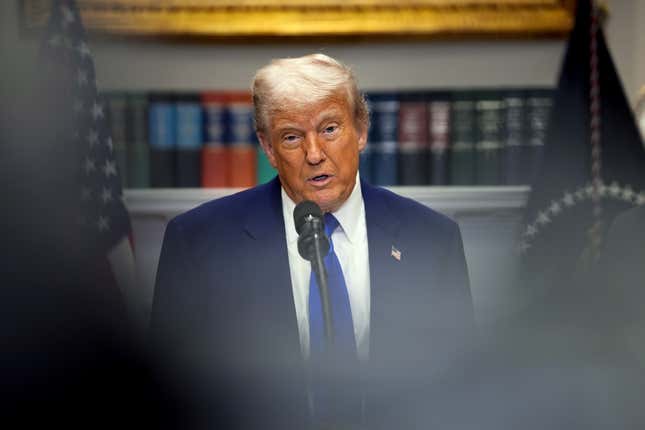
President Donald Trump declared a breakthrough in U.S.–China trade relations, claiming Beijing has agreed to “open itself up to American business” following a significant temporary easing of tariffs between the two economic powers.
Earlier Monday, U.S. and Chinese officials announced a 90-day pause on most tariffs and trade barriers. As part of the agreement, the U.S. will temporarily reduce tariffs on Chinese goods to 30%, down from 145%, while China will lower tariffs on American products to 10%, down from 125%.
Speaking at the White House on Monday morning, Trump characterized the development as a “total reset with China” after months of mounting tariffs and trade tensions. While the agreement still needs to be signed, Trump said China would “suspend and remove all of its nonmonetary [trade] barriers,” a point of longstanding frustration for American exporters and companies.
“The best part of the deal,” he said, is that “China agreed to open itself up to American business.” Trump said the U.S. had long been open to Chinese goods while receiving little access in return. “It never made sense to me. It’s not fair,” he said. Trump said that development was “maybe the most important thing” to come out of the trade talks over the weekend.
The president said he would be speaking with Chinese President Xi Jinping “maybe at the end of the week” as talks continue.
Trump said the current relationship between the U.S. and China is “very good,” adding that “we’re not looking to hurt China.” He claimed that the trade war had taken a toll on the Chinese economy: “They were closing up factories. They were having a lot of unrest, and they were very happy to be able to do something with us,” he said.
According to Trump, the agreement reached over the weekend in Geneva is a version of a broader deal that previously fell apart. “We made a great trade deal, and it was a much bigger deal originally, and then they cancelled it right on the last day,” he said.
While the agreement represents progress, tariffs haven’t been fully removed. The 30% tariff on Chinese goods includes a 20% penalty Trump had previously imposed over China’s role in the U.S. fentanyl crisis. Trump emphasized that Beijing has pledged to take the matter more seriously.
“They’ve agreed they’re going to stop that,” he said, referring to China-based shipments of the powerful synthetic opioid to the U.S. “They’ll be rewarded by not having to pay ... hundreds of billions of dollars in tariffs.”